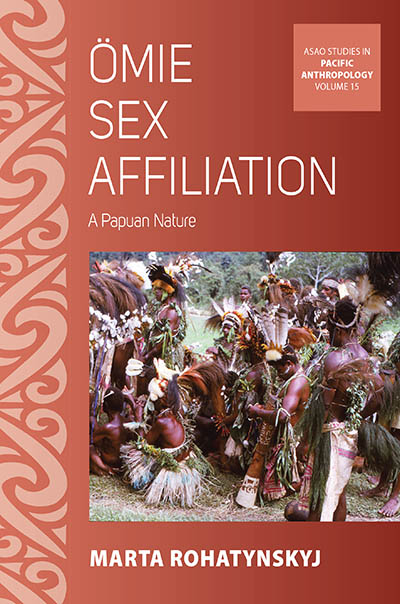“It offers a unique contribution to the literature on Papua New Guinea societies. The ethnography was collected at a time when it was possible to engage with people who had witnessed and participated in complex rites which have lapsed or been replaced by recent introductions.” • James Leach, CNRS
The practice of affiliating the female child with the mother and the male child with the father was considered a rare and inexplicable practice in Papua New Guinean ethnography at the time the original data was collected some forty years ago. Marta Rohatynskyj undertakes a shift in her analytical concepts of kinship studies to reveal the deep-seated disjuncture between female and male that this practice represents. The author argues that this practice is associated with a totemic/animistic ontology and has currency in a particular type of Melanesian society.
Marta Rohatynskyj taught for over twenty years in the Department of Sociology and Anthropology at the University of Guelph, in Guelph, Ontario, Canada, and published on the topics of gender and development both in the Papua New Guinean setting as well as elsewhere. Her publications include the co-edited volume with Sjoerd Jaarsma Ethnographic Artifacts: Challenges to a Reflexive Anthropology (University of Hawaii Press, 2000).
LC: HQ1075.5.P26 R64 2023
BISAC: SOC002010 SOCIAL SCIENCE/Anthropology/Cultural & Social; SOC032000 SOCIAL SCIENCE/Gender Studies; SOC026010 SOCIAL SCIENCE/Sociology/Marriage & Family


